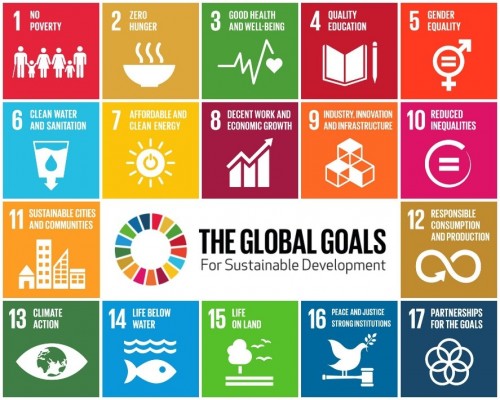SDGs Data Ecosystem Mapping
Date: Aug 20th, 2019

Summary
This project aims at provides an overview of the SDGs data ecosystem in Kenya, focussing on data produced by selected county governments as well as civil society organisations. The mapping exercise covers five Sustainable Development Goals (SDG) namely:
- SDG 2: Zero Hunger,
- SDG 3: Good Health and Well-Being,
- SDG 4: Quality Education,
- SDG 6: Clean Water and Sanitation and;
- SDG 7: Affordable Clean Energy.
The objective is to find ways of fostering and strengthening collaboration between data producers on implementing SDGs in Kenya. The work is supported by the German Federal Ministry for Economic Cooperation and Development (BMZ) through the Deutsche Gesellschaft für Internationale Zusammenarbeit (GIZ) specifically on the component of SDGs monitoring and review in Kenya.
Objectives
The data mapping exercise focuses on two main objectives:
- Conducting a data ecosystem mapping for Kenya. This includes data collected by official and non-official data producers, tools and methodologies used for data collection and the main data producers (and users) of the data. In order to allow for an in-depth analysis, the data ecosystem mapping has been limited to a number of selected SDGs that have been defined by key stakeholders, and focuses on data and processes at both the national and the county level (specifically Kisumu, Vihiga and Elgeyo-Marakwet Counties).
- Developing a set of recommendations on how to build an integrated multi-stakeholder approach to SDGs monitoring in Kenya based on the mapping exercise.
Process
In terms of methodology, the overall approach entailed reviewing data collection, analysis, quality assurance processes and tools of both state and non-state actors at the national level as well as in three counties (Elgeyo Marakwet, Kisumu, Vihiga). The document review investigated existing legal frameworks, policies and guidelines around data collection, analysis and dissemination in the era of the SDGs. Overall we considered the number respondents a fairly representative sample for the mapping exercise given their level of expertise and seniority within participating organisations.
The study sought to investigate the actual practice in monitoring SDGs. The mapping exercise focused on Goals 2, 3, 4, 6, and 7 - having been guided by prior meetings of key stakeholders. The mapping exercise relied on three main sources of data: secondary programme/project documentation/data, key informants, group interviews, and field observation. An analytical framework was designed to guide the content and methodology of the review; deliberately outlining the focus of the study, as outlined in section 3.6. The Quality Assurance Mechanism incorporated a number of core principles to ensure a strong mapping exercise, these include inclusion, appropriateness, triangulation and transparency. Additional considerations/data sources and examples were incorporated to strengthen the justification while outlining the imitations of the study.
Outputs
The deliverables include:
- The development of a methodology for the data ecosystem mapping based on international standards and best practices
- A comprehensive analysis of the SDGs monitoring in Kenya, including the mapping of official and non-official data producers and data users
- A review of official and non-official data sources, and ;
- A review of data collection tools and methodologies, making specific recommendations on a methodology that will prescribe the treatment of official and non-official data sources including data collection, analysis and information dissemination.
- A final report which presents a detailed and exhaustive analysis of the various components of the data ecosystem in Kenya (from lessons in Kisumu, Vihiga and Elgeyo Marakwet)
View document for more info →
